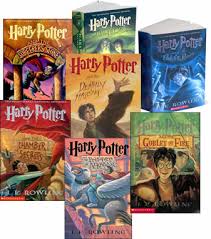As a writer and reader of speculative fiction, I think a lot about other worlds….
Who am I kidding? A lot is an understatement. My mind is always wandering back to worlds that are filled with enchantment or mysterious advanced technologies. Like many middle grade readers and writers, this “mind trip” has always appealed to me and is one of the draws of middle grade fiction. There are just so many wonderfully delightful worlds to immerse ourselves in.
Recently, I came across a quote by one of my favorite fantastical world creators, reviewing one of my favorite books and its accompanying world. I think this statement describes the essence of what those of us writing speculative middle grade fiction should shoot for. Ready for the quote?
 In 1937, C. S. Lewis anonymously reviewed The Hobbit, saying… (drum roll) … Wait for it… You know this has to be epic, since it’s a comment from one of the godfathers of fantasy talking about the other godfather of fantasy…. Ok, sorry, I get fanboy when talking about the Lewis and the Tolkien. Here we go: Of Middle Earth, Lewis says it is “A world that seems to have been going on before we stumbled into it but which, once found by the right reader, becomes indispensable for him.”
In 1937, C. S. Lewis anonymously reviewed The Hobbit, saying… (drum roll) … Wait for it… You know this has to be epic, since it’s a comment from one of the godfathers of fantasy talking about the other godfather of fantasy…. Ok, sorry, I get fanboy when talking about the Lewis and the Tolkien. Here we go: Of Middle Earth, Lewis says it is “A world that seems to have been going on before we stumbled into it but which, once found by the right reader, becomes indispensable for him.”
Isn’t this completely, utterly, and fantastically true about your favorite middle grade fantasy (or even any speculative fiction world)? Consider your favorite fictional worlds and how much they mean to you. In fact, dare I propose they could mean more to you than even the characters that inhabit those worlds?
Now, don’t get me wrong. I love Bilbo, Harry, Gandalf, Percy, Herimone, Snape, Art, Thorin, Myrtle, Grover, Annabeth, and Jack, but the worlds Tolkien, Rowling, Riordan, and Reeve created is what keeps drawing me back into their fiction. (By the way, if you didn’t catch my references to the Larklight series by Phillip Reeve, stop reading this post and go buy them. If the other character references didn’t mean anything to you, please make an appointment for a literary intervention.)
worlds Tolkien, Rowling, Riordan, and Reeve created is what keeps drawing me back into their fiction. (By the way, if you didn’t catch my references to the Larklight series by Phillip Reeve, stop reading this post and go buy them. If the other character references didn’t mean anything to you, please make an appointment for a literary intervention.)
Back to my world-building soapbox. Upon the completion of the Harry Potter series, I’ll admit that my tears weren’t for Harry and his friends as I put down the book; it was the loss of the wizarding world that broke my heart. It was the knowledge that I wasn’t going to be able to return to the places I had come to adore (or at least not explore them afresh). My attachment to Rowling’s world made  the danger Voldemort posed to it more nail-biting and hand-wringing than even the possibility of Harry’s demise in the final installment.
the danger Voldemort posed to it more nail-biting and hand-wringing than even the possibility of Harry’s demise in the final installment.
This is the kind of world I, as a writer, hope to create—a world that both your protagonist and your reader are willing to fight for.
So, please comment: what other worlds out there do you find to be “indispensible” and worth defending? I’m always looking for new worlds to plop into.
Bruce Eschler teaches junior high school students most of the year, writes speculative fiction for kids as much as he can, and is hoping he’ll soon be done with his pesky doctoral program. He has occasionally been spotted at www.bruceeschler.com.

L,
Howl’s Moving Castle has been on my to read list for too long. I need to read it. Also, I’m intrigued by Fly by Night. It is now going on my to read list.
Kate,
I can’t express how much I love the Larklight series. It isn’t fantasy but some sort of science-fiction/Victorian/space-opera for pure delightfulness. I hope your son enjoys.
Wow! That is quite a ringing endorsement. I have to say I do not enjoy fantasy. My son devours it. I will have to check out Larklight for him!
I love a narrative world where the is redemption and forgiveness.
Middle Earth, indeed, feels indispensable; connecting even more than Narnia has with me. Maybe it is in having read House of Many Ways by Diana Wynne Jones lately, but I wouldn’t mind looking out toward some rise and seeing Howl’s moving castle roaming about. I like Frances Hardinge’s Realm in her Fly by Night series; okay, maybe not the sinister guilds. N.D. Neff’s 100 cupboards wouldn’t be the worst way to pass the time either.